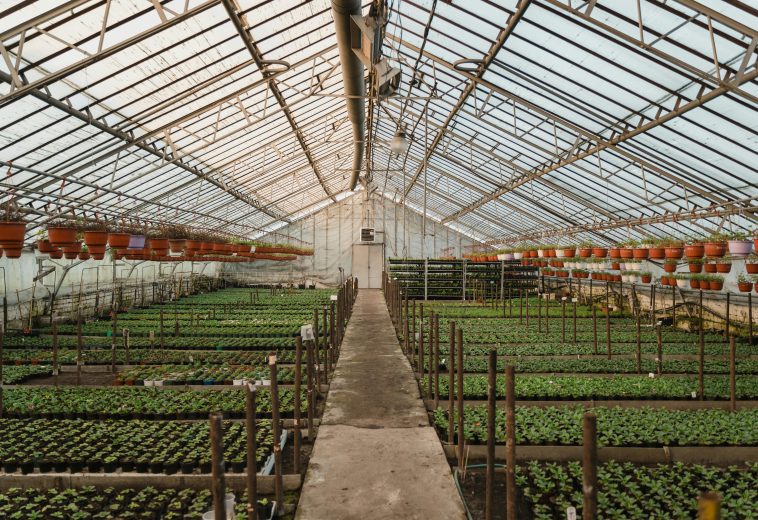In the global shift towards sustainable energy, Africa is leveraging its rich natural resources and forward-thinking policies, positioning the continent as one of the global leaders in clean energy. The continent’s renewable energy capacity is projected to exceed 320 GW by 2030, and recent data reveals that renewable energy investments in Africa have surged by over 80% in the past five years, with countries like Egypt, Kenya, and Morocco spearheading transformative projects reshaping the energy landscape.
The year 2024 was the hottest year on record globally, highlighting the urgent need for accelerated climate action. Recent global political and socio-economic crises have revealed the vulnerabilities of fossil fuel-dependent economies, which remain susceptible to price shocks and volatility.
READ ALSO: The Call for Renewable Energy in Africa
The outcomes of COP28 and COP29, coupled with the upcoming update of national climate plans (NDCs 3.0), provide critical opportunities for the world to recalibrate its approach and expedite the transition to renewable energy systems.
As 2025 marks a decade since the adoption of the Paris Agreement, the urgency to achieve its targets is more pronounced than ever. Despite record increases in renewable energy deployment last year, progress still falls short of what is necessary to combat climate change and ensure sustainable development for all. Preliminary estimates for renewable power capacity additions in 2024 suggest a new high of over 530 GW. However, this still lags behind the annual target of 11.2 TW required by 2030 to meet global objectives.
Selwin Hart, the special adviser to the UN Secretary-General on Climate Action and Just Transition, emphasised the need for inclusivity in the energy transition. “We are fully committed to supporting the developing world and helping nations bridge their differences to ensure that, in a divided and complex global landscape, we remain focused on securing a just and prosperous future for everyone,” he said.
Africa’s Solar Renaissance
Africa, bathed in year-round sunshine, is capitalising on its solar wealth. Countries like Egypt, South Africa, and Morocco are pioneering large-scale solar projects rivalling those in Europe and Asia. Morocco’s Noor Ouarzazate Complex, one of the largest concentrated solar plants in the world, exemplifies the continent’s ambitions. By 2025, the International Renewable Energy Agency (IRENA) predicts that Africa’s solar capacity could increase fivefold, with nations like Rwanda and Namibia leading smaller, community-focused initiatives.
The scale of investment is substantial. According to McKinsey & Company, renewable energy projects in Africa attracted over $25 billion in investments in 2023, with solar energy accounting for 60% of these funds. This financial influx highlights growing international confidence in Africa’s renewable energy potential.
The Desert to Power initiative serves as a metaphor for Africa’s transformative potential. By converting vast, arid landscapes into energy powerhouses, the initiative aims to provide electricity to over 250 million people, representing a significant stride towards universal energy access.
Wind and Hydropower
While solar energy steals the spotlight, Africa’s wind and hydropower sectors are quietly making significant strides. Kenya’s Lake Turkana Wind Power Project is delivering clean energy to millions. Similarly, Ethiopia’s Grand Renaissance Dam on the Blue Nile is poised to become Africa’s largest hydroelectric power plant, with the capacity to generate over 6,000 MW annually.
These projects are more than engineering feats; they are lifelines. They illuminate homes, energise industries, and foster economic growth in regions previously left in darkness. By harnessing the power of wind and water, Africa is paving the way for a future where energy poverty becomes a relic of the past.
Policy as the North Star
Africa’s renewable energy revolution is underpinned by robust policies designed to attract investment and streamline renewable energy deployment. The African Union’s Agenda 2063 and the African Development Bank’s Desert to Power initiative play pivotal roles in this transformation.
South Africa’s Renewable Energy Independent Power Producer Procurement Programme (REIPPPP) exemplifies how policy frameworks can catalyse progress. This initiative has attracted billions in investments and created thousands of jobs, proving that renewable energy is not just an environmental solution but also an economic driver.
Economic Impact
The ripple effects of renewable energy investments are transforming African economies. IRENA estimates that the renewable energy sector could create over 10 million jobs in Africa by 2030. From technicians installing solar panels in rural communities to engineers designing advanced wind turbines, the opportunities are both vast and varied.
Countries like Senegal and Ghana are experiencing a surge in green energy startups, supported by governmental initiatives and private sector innovation. These enterprises are not only bridging the energy gap but also cultivating a new generation of African entrepreneurs who view renewable energy as the cornerstone of sustainable development.
The Road Ahead
The path to renewable energy leadership is not without obstacles. Financing remains a significant challenge, with many projects reliant on external funding. Additionally, the continent’s infrastructure must evolve to accommodate the integration of renewable energy sources into national grids.
However, Africa’s resilience and ingenuity shine through. Innovative financing models, such as green bonds and public-private partnerships, are gaining traction, offering sustainable solutions to funding challenges. Advances in energy storage and smart grid technology are also paving the way for a more efficient energy ecosystem.
Africa’s leadership in renewable energy is gaining international recognition. The continent’s innovative approaches and scalable solutions are being lauded as models for other regions. The World Economic Forum’s 2025 special meeting on Africa highlighted the continent’s critical role in shaping global energy policies and fostering international collaboration.




